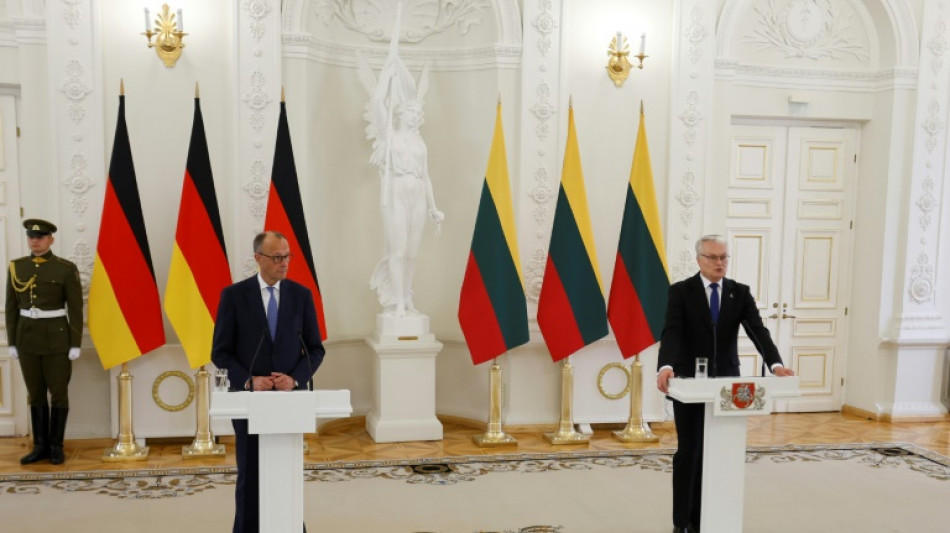
-
 Trump son hypes bitcoin on Hong Kong leg of Asia trip
Trump son hypes bitcoin on Hong Kong leg of Asia trip
-
Paetongtarn Shinawatra: glamorous Thai PM felled by Cambodia row

-
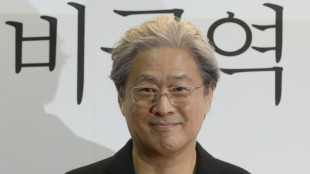 Park Chan-wook, master of black comedy, returns to Venice
Park Chan-wook, master of black comedy, returns to Venice
-
Mourinho sacked by Fenerbahce after Champions League exit
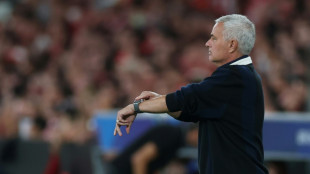
-
 German unemployment tops 3 million, highest for a decade
German unemployment tops 3 million, highest for a decade
-
Thai court sacks PM over Cambodia phone call row

-
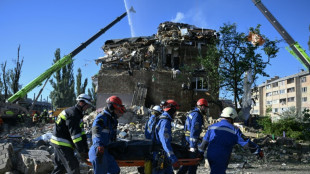 Turkey says Russia scales back Ukraine territorial demands
Turkey says Russia scales back Ukraine territorial demands
-
South Korea's ex-first lady indicted for bribery

-
 Lay off our eggs market, French producers tell Ukraine
Lay off our eggs market, French producers tell Ukraine
-
Modi says India, Japan to 'shape the Asian century'
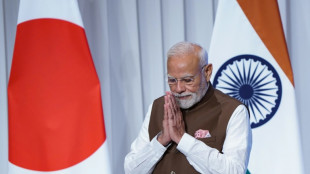
-
 Hope and hate: how migrant influx has changed Germany
Hope and hate: how migrant influx has changed Germany
-
Outdoor athletics season should be longer, says Coe
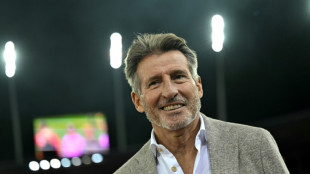
-
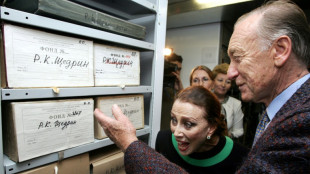 Russian composer Rodion Shchedrin dies aged 92: Bolshoi
Russian composer Rodion Shchedrin dies aged 92: Bolshoi
-
Thai court to rule on PM's fate after Cambodia phone call row

-
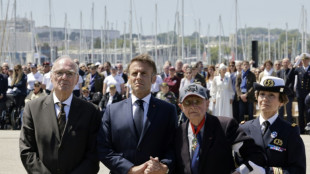 Last French survivor of key WWII desert battle dies aged 103
Last French survivor of key WWII desert battle dies aged 103
-
NZ police say CCTV shows father on the run for four years
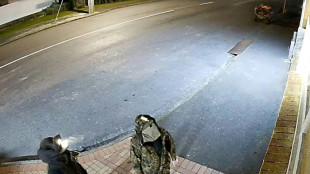
-
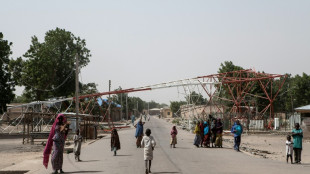 Vandalism hobbles Nigeria's mobile telephone services
Vandalism hobbles Nigeria's mobile telephone services
-
Indonesia leader orders investigation into driver's protest death
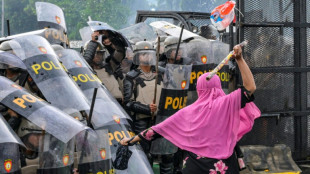
-
 At 81, DJ Gloria fills Sweden's dancefloors
At 81, DJ Gloria fills Sweden's dancefloors
-
Japan seeks record defence budget, to triple drone spending
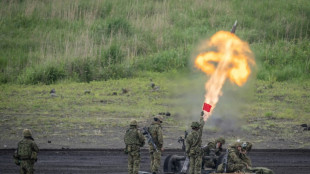
-
 Late-night Paul battles through at US Open in 1:46 am finish
Late-night Paul battles through at US Open in 1:46 am finish
-
Jury finds Australian croc wrangler lied about air crash

-
 Mistrust undermines Ivory Coast's universal healthcare dream
Mistrust undermines Ivory Coast's universal healthcare dream
-
Sinner on the march as Swiatek, tearful Gauff toil at US Open
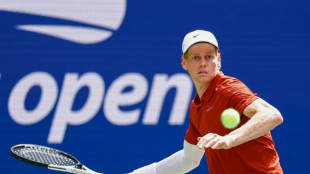
-
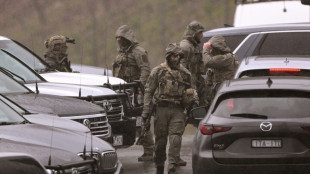 Australian police urge gunman to surrender after officers killed
Australian police urge gunman to surrender after officers killed
-
Nanjing massacre film set becomes China school holiday hotspot

-
 Celtic and Rangers seek Old Firm tonic for Champions League trauma
Celtic and Rangers seek Old Firm tonic for Champions League trauma
-
Aussie Rules player latest found with concussion-linked brain disease

-
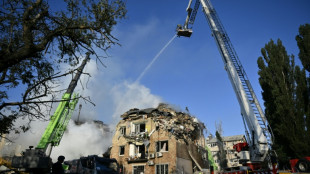 Zelensky urges more Western pressure on Putin after deadly Russian attack
Zelensky urges more Western pressure on Putin after deadly Russian attack
-
US ends tariff exemption for small packages shipped globally
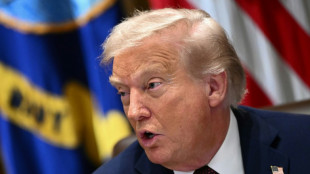
-
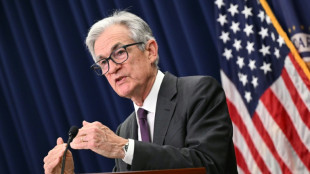 Asia stocks mixed after Wall St hits new highs
Asia stocks mixed after Wall St hits new highs
-
Cash-strapped Taliban look to airspace for windfall

-
 Biles' presence helps Gauff win US Open crying game
Biles' presence helps Gauff win US Open crying game
-
'Female power': Japan erotic art destigmatised in new exhibit

-
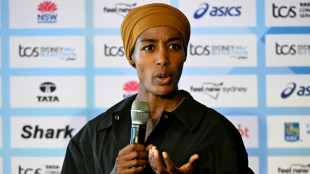 Olympic marathon champion Hassan opts for Sydney ahead of worlds
Olympic marathon champion Hassan opts for Sydney ahead of worlds
-
Atletico already playing catch-up after poor La Liga start

-
 Lyon find cause for optimism after turbulent summer
Lyon find cause for optimism after turbulent summer
-
Sinner on the march as tearful Gauff, Swiatek toil at US Open
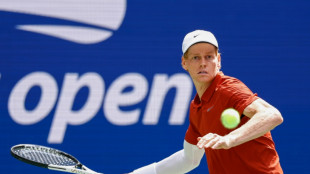
-
 Julia Roberts to make Venice debut in cancel culture drama
Julia Roberts to make Venice debut in cancel culture drama
-
Big numbers set to remain a feature of Women's Rugby World Cup

-
 Families lose hope for Salvadorans held in gang crackdown
Families lose hope for Salvadorans held in gang crackdown
-
Trump thumbs nose at decades of India courtship
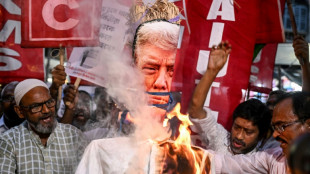
-
 Gauff wins crying game to reach US Open third round
Gauff wins crying game to reach US Open third round
-
Arsenal seek statement win at Liverpool, Amorim faces Burnley must-win

-
 Cowboys trade Parsons to Packers in blockbuster NFL deal
Cowboys trade Parsons to Packers in blockbuster NFL deal
-
Russian attack killing 23 in Kyiv unleashes international fury
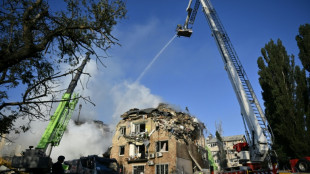
-
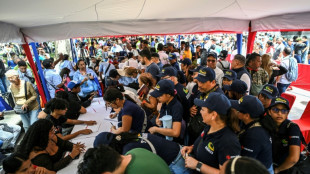 Venezuela revives heroes with AI to spur reservists on US 'threat'
Venezuela revives heroes with AI to spur reservists on US 'threat'
-
Solskjaer sacked by Besiktas after European flop
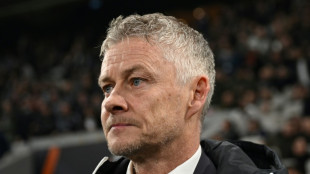
-
 Froome to undergo surgery after breaking back in training crash
Froome to undergo surgery after breaking back in training crash
-
Trump moves to end US tariff exemption for small packages
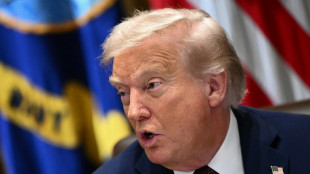

Merz warns of Russia threat in visit to NATO's eastern flank
Chancellor Friedrich Merz warned Thursday that Russia threatened security in Europe as he visited Lithuania to mark the official formation of Germany's first permanent overseas military unit since World War II, aimed at bolstering NATO's eastern flank.
The decision to build up a 5,000-strong armoured brigade in Lithuania over the coming years came in response to Russia's full-scale invasion of Ukraine in 2022.
"There is a threat to us all from Russia," Merz told reporters in the capital Vilnius. "We are protecting ourselves against this threat -- and that is why we are here today."
The German deployment is aimed at deterring potential Russian aggression towards Lithuania and fellow Baltic countries Estonia and Latvia, former Soviet republics that have become NATO and EU members and fear they are increasingly in Moscow's crosshairs.
While Germany has joined multinational military missions, including in Afghanistan and Mali, a pacifist tradition stemming from its dark World War II history meant Berlin was generally reluctant to do more.
The establishment of a permanent brigade overseas is an unprecedented move for the Bundeswehr, as the German armed forces are known, in the post-war era.
Merz, who became chancellor this month, will participate in a ceremony in the Lithuanian capital Vilnius that officially marks the formation of the heavy combat unit, the 45th tank brigade, also known as the "Lithuania Brigade".
This will be an "important milestone on the path to the permanent stationing of a German brigade on NATO's eastern flank", deputy government spokesman Steffen Meyer said last week.
The brigade, to consist of around 4,800 troops and 200 civilian Bundeswehr employees, will be gradually deployed over the coming years and should reach full operational capability by 2027.
An advance party of around 400 Bundeswehr personnel are already in the country, according to the defence ministry.
Lithuanian President Gitanas Nauseda hailed Merz's visit as a sign of Berlin's "commitment to strengthen the deterrence and defence of our country and the entire NATO eastern flank".
- Bigger role -
Merz, who has vowed to build up Europe's "strongest conventional army" by ramping up defence spending, will be keen to use the trip to highlight that Berlin is taking on a bigger role on the international stage amid dizzying political upheavals.
US President Donald Trump has heaped pressure on fellow NATO members to increase defence spending, sparked fears about American commitment to Europe, and caused shock with his overtures to Russian President Vladimir Putin as he pushes for a Ukraine peace deal.
German Defence Minister Boris Pistorius, who joined Merz on the visit, said last month that the Lithuanian deployment "sends a strong message of solidarity and readiness".
"Germany is stepping up," he added during events to mark the 70th anniversary of Germany joining the 32-member NATO military alliance.
Lithuania, with a population of 2.8 million, borders both the Russian exclave of Kaliningrad and Moscow's ally Belarus, and the German defence ministry considers it to be "the most endangered state on NATO's eastern flank".
- Growing hostility -
There have been signs of Russia ramping up hostile activities, with Moscow frequently accused of using "hybrid warfare" tactics in the Baltic Sea.
This month a Russian spy plane was spotted in Belarus apparently attempting to observe a multinational NATO military exercise in Lithuania, news outlet Der Spiegel reported.
But Germany's troop deployment is not without its difficulties.
Some question whether the Bundeswehr, suffering from personnel and equipment shortages after years of underfunding, is prepared for what the defence ministry describes as "one of the most complex and ambitious projects" in its history.
While Germany has been seeking to channel more funds to the military, new equipment will take years to order and produce.
Meanwhile the Bundeswehr, which is aiming to boost its number of soldiers to 203,000 by 2031, has been struggling to recruit.
Parliament in January passed a law aimed at making the military a more attractive career, including more flexible working arrangements and greater financial incentives.
T.Khatib--SF-PST
